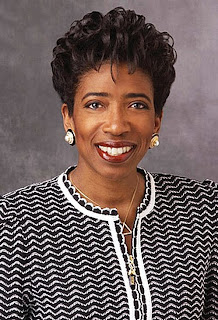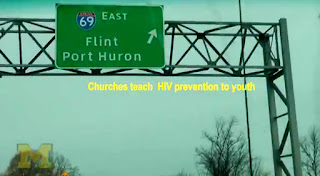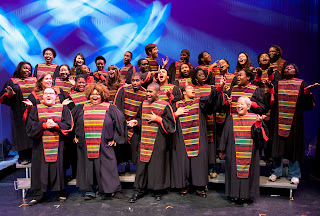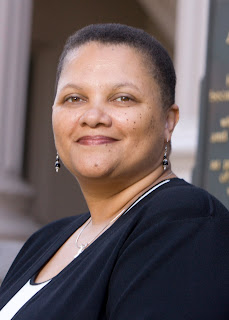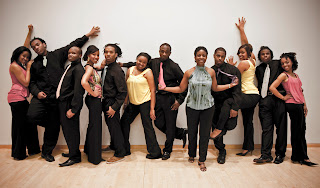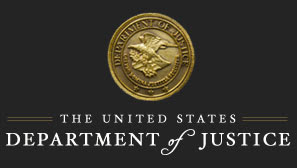Attorney General Eric Holder Speaks at National Action Network’s 13th Annual Convention.
Thank you, Reverend Sharpton. It is a privilege to be included in this annual gathering, and I want to thank you for putting me in such good company – among so many old friends, committed partners, and distinguished community and religious leaders. I’m grateful to you all – especially to the pastors who let me know that you’ve been praying for me. Please, keep it up.
I’m also grateful for this opportunity to salute all that the National Action Network – and its many supporters – are doing to strengthen our nation, to protect its most vulnerable citizens, and to carry on – and carry forward – the work of America’s greatest “drum major for justice” – the Reverend Dr. Martin Luther King, Jr.
Just two days ago, our nation marked the 43rd anniversary of Dr. King’s tragic and untimely death. Although I believe that Dr. King would be proud to see the America that he helped to create – and the extraordinary progress that’s been made in the last four decades – the unfortunate fact is that, in 2011, our nation’s long struggle to overcome disparities, to bridge long-standing divisions, and to eradicate violence has not yet ended. We have not yet reached the Promised Land that Dr. King spoke of so often. And we still have not realized his dream.
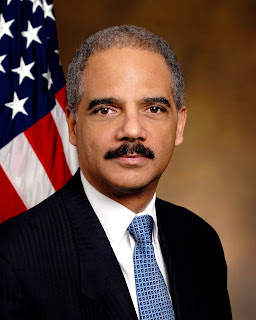 | But we can all be encouraged that, for two decades now, the National Action Network has been on the front lines of our nation’s fight to ensure security, opportunity, and justice for all. Today, this work goes on in your demands to those in power and in your aspirations for those in need. It goes on in your efforts to safeguard civil rights, to expand learning and employment opportunities, and to prevent and combat violence and crime – especially among our young people.
Throughout my life, I have seen the devastating effects of youth violence. While growing up in Queens, my brother William – who I’m glad is here with us today – and I witnessed the consequences of violence on the streets of this city. |
Throughout my career, I have learned that exposure to violence early in life – not only as a victim, but also as an observer – can have devastating, long-term effects – increasing odds for depression, substance abuse, and violent behavior into adulthood.
Today, as Attorney General – and, above all, as the father of three teenage children – I am determined to make the progress that our children deserve.
In thinking about the challenges before us, I am reminded of a question that my most famous predecessor – and one of our nation’s greatest public servants – asked nearly half a century ago. In 1967, Robert Kennedy traveled to the Mississippi Delta, where – after stepping into a dilapidated shack – he came upon a young boy. Repeatedly, he tried to talk with this child. But his words were met with a blank, almost lifeless, gaze. Although that little boy had been born in the most powerful and affluent nation on Earth, he had been silenced – by hunger, by overwhelming need, by desperation, by hopelessness.
With tears in his eyes, Robert Kennedy turned away from that child and famously asked, “How can a country like this allow it?”
Almost half a century later, Robert Kennedy’s words still resonate and remain before us. And his question – How can a country like this allow it? – is still being asked, because people like you are still asking it.
People like you – and other community and religious leaders, elected officials and activists, and concerned citizens nationwide – are challenging our great nation to confront indefensible conditions and inequities. You are calling every American to examine our values and our priorities. You are speaking for the voiceless and standing up for the powerless. And, today, I want each of you – and the communities that you serve – to know that I am proud to stand with you.
As Reverend Sharpton – and so many of you have often said – protecting our children is not just our professional calling. It is our moral obligation.
Our nation will be defined, and its future will be determined, by the support that we provide – and the doors that we open – for our young people. In looking toward – and planning for – this future, we do not have a moment to waste. In fact, in many communities, the problem of youth violence has reached crisis proportions.
Today, the majority of America’s children – more than 60 percent of them – have been exposed to crime, abuse, and violence. And rates of exposure – as a witness to or victim of violence – are even higher in low-income and minority communities.
And while people often talk about the fact that African Americans are disproportionately jailed – why aren’t we also discussing the fact that black people are also disproportionately victimized by violent crime?
African Americans are now about 13 percent of the nation’s population – but nearly 50 percent of its homicide victims. More than ninety percent of black murder victims in this country are killed by other black people. That’s right – nine out of every ten. And the leading cause of death for young black men – those aged fifteen to twenty four – is homicide. Homicide.
How can our nation risk losing so many of tomorrow’s teachers and pastors, scientists and physicians, attorneys and artists? How – it is time to ask again – can a country like this allow it?
The answer, of course, is that we cannot. And my answer – to you and to every child who lives in fear or is struggling to heal or to find hope – is that we will not.
But how? How can we effectively prevent and combat youth violence? How can we remedy its symptoms? How can we overcome the obstacles before us and the odds against us?
These are critical – and complex – questions. And we can no longer answer them in vague platitudes and clichéd calls to action. My answer to these questions – and to how we’re going to address the causes and consequences of youth violence – is simple. And it’s something that you are already doing. Take it personally.
When you read that 1.5 million American children have a parent behind bars, and that the majority of African-American households nationwide do not include a father – and when you know that children in these households are more likely to live in poverty, to perform poorly in school, to commit crimes, and to abuse drugs – take it personally.
When you discover that Black and Hispanic 12th graders are, on average, reading at the same level as white 8th graders, take it personally.
We know that a good education holds the key to a better life. When you hear that in some neighborhoods many kids are more concerned with their jump shots than their report cards, take it personally.
When you see just how common – and widely accepted – it is for our young people to celebrate music, movies, games, and role models that glorify violence and denigrate women, take it personally.
When you understand how youth violence hurts local economies, lowers property values, drives up medical costs, and forces us to spend precious taxpayer dollars on prisons and jails – rather than on education, mentoring, and violence-prevention programs – take it personally.
And when you realize that, on average, 16 young people are murdered every single day in this country, take it personally.
Just imagine if more people viewed this problem – the problem of youth violence – as their problem. Imagine where we would be. Imagine the future we could build.
I have not – and I will not – give up on my vision for that future. In this great nation, we will simply not give up on our children. We must commit to building an America where every child has a chance – to learn and to unlock their potential; to develop their gifts and to find their passion; to know peace and to have hope.
We cannot stand by while our young people kill each other and ravage our communities. And we can no longer turn a blind eye to their suffering. We must protect our young people in every way we can; empower them as well as we know how; and challenge them to make good decisions – and to contribute to the work of strengthening our nation and honoring our founding principles.
I am proud that addressing youth violence is a top priority for this administration – and for today’s Justice Department. Just yesterday, as part of the administration’s National Forum on Youth Violence Prevention, the Justice Department convened – and I took part in – a summit in Washington where leaders and community stakeholders from six different cities unveiled comprehensive youth violence prevention plans. And the Justice Department now is directing resources for the express purpose of reducing childhood exposure to violence. We’re also working to raise awareness of its ramifications; to advance scientific inquiry on its causes and characteristics; and, of course, to counter its negative impact.
But the simple truth is that government can’t do it alone.
We need your help to apply the lessons we’ve learned – like the fact that enforcement, prosecution, and incarceration – while key components in our fight to ensure public safety – are merely pieces of the larger puzzle for addressing and eliminating youth violence.
We need your help to develop and implement prevention, intervention, and reentry strategies; to launch new after-school programs; to create more summer jobs; and to build the adult support necessary to expand opportunities for achievement, contribution, and public service.
And we need your help to reach out to both parents and children; to provide teachers, civic leaders, and public health officials with up-to-date information about youth violence trends and indicators; and to train lawyers and law enforcement officers to respond more effectively when violence occurs.
Unfortunately, it’s not yet possible to reach every child who needs our help. And, despite our best efforts, we know that some young people will start down the wrong path. But for them, we must provide opportunities to break destructive cycles and to grow still into productive members of society.
Equally important, we must not – and will not – excuse violent criminal behavior. Just as our crime prevention efforts must focus on alleviating the conditions that tend to breed crime, they must also concentrate on bringing those who seek to impose their will through violent means to justice. Personal responsibility and accountability are necessary ingredients in the struggle for the future of our children.
Now, I don’t pretend that the work of achieving our public safety goals – and fulfilling our responsibilities to our young people – will be easy. As we move forward, I know there will be obstacles and costs. And progress may not come as quickly as we would like.
I can accept that. But what I cannot accept is an America where parents no longer tell their children what my parents and grandparents so often told me, that “In this country, if you are willing to work hard and to play by the rules, you can achieve great things.”
Since America’s earliest days, this has been her creed. I cannot accept an America where these words no longer hold truth – an America were children can’t learn and play in peace, and where they are at risk in their own homes and schools.
No, I cannot accept that America. None of us can. None of us should. Never forget: This is a moral issue.
So let us seize this moment – and the extraordinary opportunities before us. Let us commit to the progress that we can, and must, make together – and, most importantly, let us commit ourselves to the children who are counting on us all. Their future is our future. Their fate is our own. If we are to be true to the rich legacy that is ours, we must do all that we can to ensure a future for our children that is steeped in responsibility and filled with opportunity and equality. This is the task before us. With hard work and with commitment we can make a better world for those for whom we have the ultimate responsibility.
Thank you.
TEXT amd IMAGE CREDIT:
U.S. Department of Justice 950 Pennsylvania Avenue, NW
Washington, DC 20530-0001. Department of Justice Main Switchboard - 202-514-2000, Office of the Attorney General Public Comment Line - 202-353-1555, E-mails to the Department of Justice, including the Attorney General, may be sent to
AskDOJ@usdoj.gov. E-mails will be forwarded to the responsible Department of Justice component for appropriate handling.










